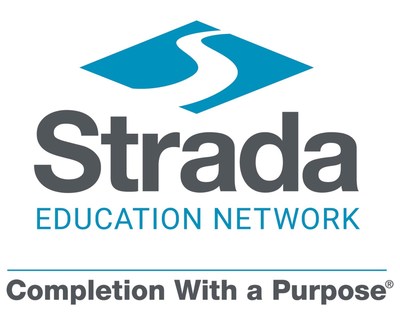Robot Ready? Labor Market Analysis Finds "Human+ Skills" in High Demand
WASHINGTON, Nov. 13, 2018 /PRNewswire/ -- Despite declining enrollment, the skills traditionally associated with liberal arts programs?such as critical thinking, communication, and creativity?are among the most in-demand by employers, according to a new analysis of more than 100 million job postings, resumes and social profiles by Strada Institute for the Future of Work and labor market analytics expert, Emsi.

"As technology continues to advance, the line between soft and hard skills is disappearing. What matters is whether a skill is 'human' or can be performed by machines," says Michelle Weise, Ph.D., chief innovation officer at Strada Institute for the Future of Work, a new research and development lab within Strada Education Network. "Our analysis of liberal arts graduates offers all disciplines a case study on how to future-proof workers: obliterating the false choice between technical and liberal arts education, and providing graduates with the tools they need to more effectively translate their skills to the world of work."
The report, "Robot-Ready: Human+ Skills for the Future of Work," finds that amid rapid automation of technical skills, employers are hungry for employees with uniquely "human" skills like communication, critical thinking, ethics and problem-solving. "The most valuable workers, now and in the future, will be those who can combine technical knowledge with human skills: programming + ethics, artificial intelligence + emotional intelligence, logic + judgment," says Weise.
The report focuses on liberal arts degree programs because they are so clearly geared toward developing these human skills and remain a chief, though not exclusive, pathway through which millions of Americans learn these skills. And, just as these skills are needed more than ever, liberal arts programs are shrinking dramatically.
Key findings include:
- Human skills, like leadership, communication, and problem solving, are among the most in-demand skills in the labor market.
- Human skills are applied differently across career fields and must be effectively translated in terms of their relevance and application within a given field.
- Liberal arts majors can break down barriers to entry through better identification and understanding of their human skills and the addition of targeted technical skills. There is a discernible labor market demand for agile and resilient thinkers who have a handle on basic technical skills like data analysis and digital fluency.
- Liberal arts graduates' marketplace outcomes are positive but less predictable than their STEM peers.
"There is a mismatch between the high demand for human+ skills and the labor market value assigned to liberal arts backgrounds. Liberal arts graduates trail STEM majors in earnings, experience slow starts to their careers, and are most likely to regret their majors," said Rob Sentz, chief innovation officer at Emsi. "Our analysis reveals a language barrier between educators, graduates, and employers. Students don't understand how to translate their learning into job functions, and employers don't know how to articulate the skills they seek. We need to teach liberal arts ? and all ? graduates how to better translate their human skills into the language of employers."
To view the report, visit https://www.economicmodeling.com/human-skills/
About Strada Institute for the Future of Work
Strada Institute for the Future of Work is dedicated to advancing our understanding of the future of learning and work, so that we may begin to build the learning ecosystem of the future. The Strada Institute is a part of Strada Education Network, a national nonprofit dedicated to improving lives by catalyzing more direct and promising pathways between education and employment. Visit www.stradaeducation.org/institute for more details.
About Emsi
Emsi, an affiliate of Strada Education Network, provides high-quality labor market data and expert analysis to professionals in economic development, workforce development, commercial real estate, higher education, and talent acquisition. Emsi uses sound economic principles and good data to drive economic prosperity.

SOURCE Strada Education Network
News published on and distributed by:



